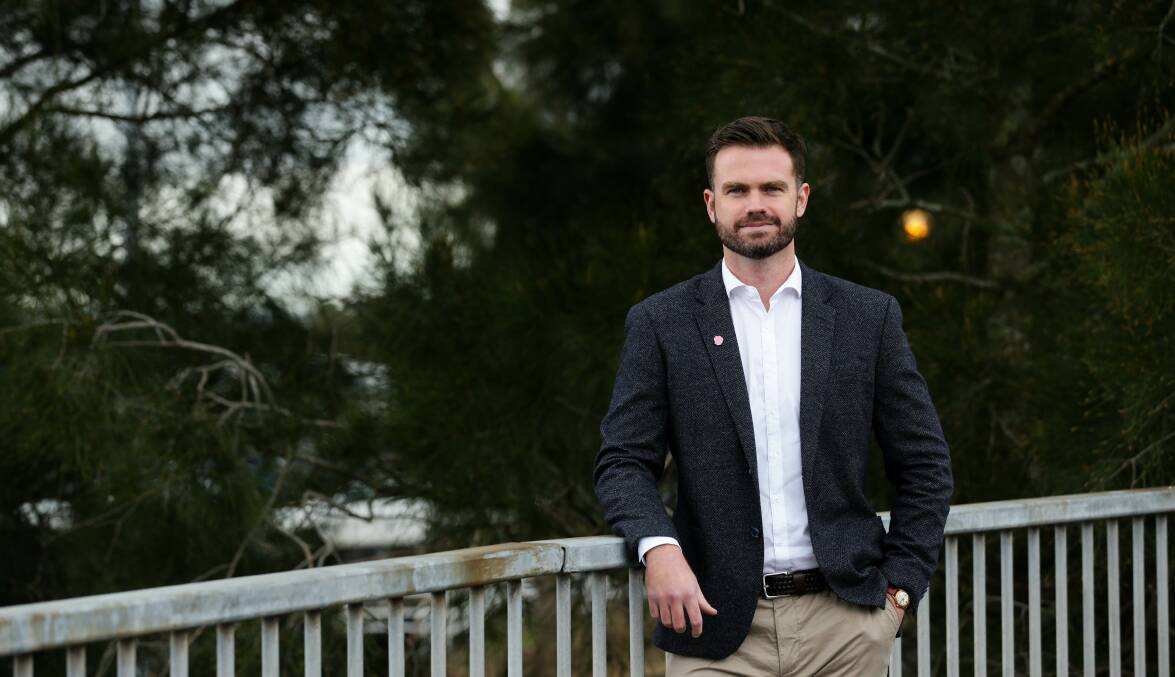
Isolated subdivisions, underused public transport, key housing projects going nowhere, inadequate planning and a growing infrastructure backlog.
This is the unhappy picture painted in a farewell letter from the Greater Cities Commission Lower Hunter representative, Matthew Endacott, to the state government on Friday.
Mr Endacott will leave the job next week after the government scrapped the commission in November.
But first he has sent a report to the government, completed at his own expense and in his own time, setting out a list of recommendations on how to address a host of issues facing the region.
The report calls on the government to build a new entertainment centre at the proposed Hunter Park precinct "before the redevelopment or sale of any public land" and to extend the light rail line to Broadmeadow.
He suggests rapid bus services should run along the tram route in the meantime.
"The redevelopment of Broadmeadow is overdue," he writes.
"Planning within the precinct is uncoordinated and putting good outcomes at risk.
"The City Commissioner is of the view that the precinct suffers from an ongoing 'piecemeal approach'.
"This is resulting in 'low hanging fruit sites' progressing faster than more ambitious and essential projects such as extending light rail or replacing the Newcastle Entertainment Centre."
Mr Endacott recommends a new university campus in central Maitland to serve the growing coalfields community and an innovation or education precinct around Maitland Hospital, which he says should have a train station.
He says the government should work with Maitland City Council on an "ambitious" plan for the town's centre, including a flood evacuation route which will allow for more housing.
He also calls for better train services north-west of Maitland to cater for subdivisions in the coalfields, including electrifying and extending Hunter Line services to Branxton, introducing a Branxton to Morisset service via Broadmeadow and preserving the rail corridor between Cessnock and Maitland "with a long-term plan to reintroduce rail services between Newcastle and Cessnock".
He criticises the ongoing practice of building "greenfield" housing developments "in isolated locations away from jobs, services and underutilised public transport" instead of developing the Lower Hunter's many "brownfield" former industrial sites.
"We are creating mortgages but not communities," he writes.
"Left unchecked, more of these developments will only add to the region's infrastructure backlog.
"This is madness in a city awash with underutilised brownfield sites, many of them serviced by equally underutilised public transport and within walking distance of town centres and services."
He says the government should lead urban renewal programs in places like Broadmeadow, Cockle Creek and East Maitland to help address the city's housing crisis.
"As it stands, most of our future growth will continue to be on greenfield sites.
"This is a legacy of inadequate planning and a lack of investment in comparably better-sited brownfield precincts such as Broadmeadow and North West Lake Macquarie."
Broadmeadow, Cockle Creek and East Maitland were excluded from a list of seven Hunter train stations the government identified this month for higher housing density.
He writes that "existing land-use planning in the region's western suburbs is unsustainable" and "we need to get much better at enabling infill housing in walkable neighbourhoods such as East Maitland, Cardiff and Raymond Terrace".
"This requires investment in basic infrastructure such as stormwater drains, traffic and new public transport options."
Mr Endacott's previous jobs include two years as a government and industry relations officer at UrbanGrowth NSW, communications for Hunter Development Corporation in 2018 and two years in an urban renewal and engagement role at infrastructure consultants AECOM.
Many of his recommendations focus on public transport, including introducing an orbital rapid bus service integrated with trains and light rail to provide direct connections between the airport, Newcastle Interchange, Charlestown, north-west Lake Macquarie, John Hunter Hospital, University of Newcastle and Raymond Terrace.
He also wants a transport interchange at a renamed Warabrook railway station providing direct access to the university from all five Lower Hunter local government areas.
"The City Commissioner recommends education attainment rates in Cessnock local government area be supported through the introduction of a direct and regular bus service between Cessnock and University of Newcastle transport interchange," he says.
Many of his recommendations mirror the long-expressed advocacy of Hunter local government, business and community organisations, including restoring the Newcastle Mines Grouting Fund and speeding up work on upgrading Mandalong Road at Morisset.
He says the redevelopment of Broadmeadow, which the government has identified for up to 16,600 new homes, should be planned and coordinated by one government agency working closely with Transport for NSW.
He recommends an aquatic centre be included in plans for Hunter Park and echoes Newcastle Labor councillors' calls for a dedicated bus lane to be added to the Newcastle Inner City Bypass.
On the airport "gateway", he calls for government support to help secure direct flights to Singapore and recommends a rapid bus service to Newcastle central business district.
He also says Cessnock should have a new bus service to an upgraded railway station at Branxton and more government spending on roads.
"Cessnock's growth has not been supported by successive NSW governments.
"Its road network is unable to support future growth and there is limited public transport options between Cessnock CBD and its high-growth areas."







